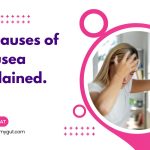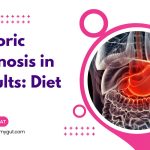Coffee after Taking Omeprazole: Pros, Cons, & How Soon to Drink.
Our content is not intended nor recommended as a substitute for medical advice by your doctor. Use for informational purposes only.
Shall you drink coffee after taking omeprazole?
You probably take omeprazole for one of the below conditions:
- GERD.
- Chronic gastritis.
- Stomach or duodenal ulcers.
- H. pylori infection.
Caffeinated products such as coffee may have adverse effects on GERD and gastritis.
Caffeine may increase acid reflux through alteration of the lower esophageal sphincter pressure. Also, some studies suggest that caffeine in your coffee may increase gastric acid production.
However, The evidence is not well established; No well-designed studies have confirmed the effects of caffeine in coffee on your lower esophageal sphincter and acid production (reference).
Decaffeinated coffee may have fewer drawbacks on your stomach and GERD. According to one study, decaffeinated coffee stimulated LESS acid production than the caffeinated type.
Also, caffeine may increase Your blood levels of a gastrin hormone (reference). The gastrin hormone stimulates your stomach to produce more gastric acid.
Pros of drinking coffee:
Coffee is one of the most potent antioxidants on planet Earth. In addition, coffee provides you with antioxidant amounts greater than antioxidants in fruits and vegetables (reference).
Drinking coffee has a wide variety of health benefits:
- Coffee improves your energy levels.
- It protects you from various cancers (such as liver cancer).
- It can help you burn more fat.
- It can improve your overall physical health and performance.
- The use of caffeine may lower your risk of getting type 2 diabetes.
- It also may reduce the risk of Alzheimer’s, dementia, and Parkinson’s disease.
- In addition, it may reduce your risk of getting a stroke or heart disease.
Cons of drinking coffee with a stomach disease or GERD:
We currently lack sufficient evidence of whether coffee and caffeine are good or bad for GERD. Your experimentation is the best strategy to test coffee effects.
However, coffee and caffeine are linked to increased gastric acid and worsening stomach and GERD symptoms by:
- The increase in gastric acid production.
- The stimulation of gastrin hormone secretion.
- The effect on the esophageal sphincter in GERD can trigger heartburn symptoms because it relaxes the lower esophageal sphincter.
- Coffee may be one of the reasons why omeprazole is not working for your acid reflux.
In our personal experience, coffee may trigger gastritis and heartburn in a large subset of patients. But, of course, your response can be different.
Drink coffee only if it doesn’t worsen your symptoms. Also, shifting to decaffeinated coffee may be a good alternative.
How soon should you drink coffee after taking omeprazole?
You can drink coffee as soon as 30 minutes after taking omeprazole. However, omeprazole is best taken in the morning before breakfast. Therefore, drinking coffee after breakfast is better than taking it on an empty stomach after omeprazole.
Omeprazole needs at least 30 minutes to start working (reference). Drinking omeprazole with your morning coffee is not recommended. It will make omeprazole less effective in controlling acid secretion.
Waiting 60 minutes after omeprazole is even better if you’re not in a rush. Also, You should take omeprazole on an empty stomach. Taking omeprazole after eating is prohibited except after at least 2-3 hours.
Always think of a better alternative to coffee if you are on omeprazole. Coffee (particularly caffeinated) is not the best choice after taking omeprazole.
Try to take coffee types with the least caffeine; the caffeine content in different types of coffee is illustrated HERE and HERE.
More:
- 8 Foods to Avoid with H. pylori.
- Can omeprazole change your stool color? (yellow, black, green stools, and more).
- Evidence-based
- Written by a doctor.







